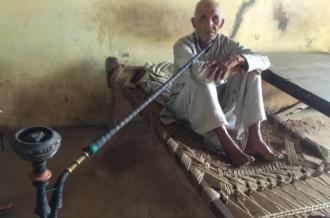Polls offer little hope for India’s Muslims
Community in riot-hit Muzaffarnagar, divided on religious lines, look for relief and security in elections.

Muzaffarnagar, Uttar Pradesh – Nearly seven months ago, Mehdi Hassan, 35, lost everything in Hindu-Muslim riots, including his faith in the government, which, according to him, did little to protect the lives of its own citizens.
As Muzaffarnagar, a dusty town barely 100km from India’s capital, New Delhi, goes to polls on April 10, Hassan along with hundreds of Muslims are being lured by political parties for the only thing they have left – their votes.
For hundreds of Muslim families languishing in relief camps with almost no basic amenities, today’s election may revive their faith in democracy and rekindle their hope for justice.
But Muzaffarnagar, famous for its sugar production, is bitterly divided on religious lines, something this town in western Uttar Pradesh was not known for.
On Thursday, Hassan says he will use his vote to find “justice” for his forced displacement along with thousands of others from his community. More than 3,200 riot victims have registered to vote.
“Our votes will answer. Those who killed and displaced us will not win,” he said.
The deadly riots between Hindu Jats and Muslims last September left more than 60 people dead and displaced over 50,000 people, mostly Muslims.
“The elections have come at the right time. Samajwadi Party didn’t stop the riots but it gave us compensation $8,314 [500,000 rupees]. I will vote for it,” Momina Begum, 40, who saw her mother-in-law being shot dead in their house at Kutba village, told Al Jazeera while expressing rage against the Hindu nationalist Bharatiya Janata Party (BJP).
Hindu Jats perspective
Just few kilometres from here, in Kakad – a riot-hit village now emptied of Muslims – BJP flags are hoisted on top of houses.
“They can come and stay with us again. But in elections they are again in the opposite camp,” Bikram Singh, from the Jat community, told Al Jazeera as he sat on his charpoy smoking a hookah.
Jats, a farming community, accuse the ruling party in the state, Samajwadi Party (SP), of triggering riots, while Muslims accuse the BJP of fomenting the violence for political gains.
Muslims, who form nearly 14 percent of India’s population, are believed to influence the result of at least 100 of the 543 parliamentary seats. The Uttar Pradesh state alone sends 80 seats to parliament or House of the people.
However, many experts say the community, like any other in the country, is divided and that the idea of vote-bank is a myth. The so-called secular parties such as the ruling Congress party and a number of regional parties have come under attack by Hindu nationalists for using Muslims as a vote-bank – in other words as a community they vote en masse for non-BJP parties.
 |
| Bikram Singh [Baba Umar/ Al Jazeera] |
“In the first three decades post-Independence, Muslims tended to support the Congress, first staunchly, then reluctantly. They progressively abandoned it to the benefit of various secular opposition parties, led by the various avatars of the Janata Party,” Gilles Verniers, a contributor for the book Muslims in Indian Cities: Trajectories of Marginalisation told Al Jazeera.
Verniers says in northern India – in the context of religious mobilisation led by the BJP in the name of the Hindu majority – “Muslims have largely aligned with secular regional parties.”
India witnessed over 700 communal riots, with Uttar Pradesh topping the list, last year.
When the national agenda is about development and job creation, the Muslim community’s primary focus is security for their lives, and events such as in Muzaffarnagar seemed to have pushed them further away from aspirational politics.
“The ineptitude of the state and of some regional government to come to their [Muslims’] aid in situations of threat [communal riots, etc] bears heavily in their mind,” Verniers told Al Jazeera.
“The insistence on personal security does not supersede other forms of aspirations linked to development. But I doubt they would be lured by the development promise that the BJP tries to incarnate, or that they would trade their safety for development.”
Their situation is further compounded by the opportunism of Muslim leaders, who have failed to raise the genuine demands of the community.
Muslim community vote
Many Muslim religious leaders have openly appealed to the community to vote against the BJP, which has recently been wooing the minority community.
|
|
| India’s riot victims fight fear to vote |
Maulana Arshad Madani, an influential religious leader, has warned that India will be “partitioned” if BJP came to power.
India’s largest minority looks at the BJP leader Narendra Modi with distrust following the 2002 religious riots in the western Gujarat state that left more than 1,000 people, mainly Muslims, dead.
Though the BJP has largely focused its campaign around development, the community, it appears, will continue to vote strategically against the Hindu nationalist party.
“Indian Muslims should not listen to the ‘biased’ clergy. It will be a wrong move,” Syed Shahnawaz Hussain, a senior BJP leader and one of the few Muslim names in the BJP leadership, told Al Jazeera.
Hussain, who is contesting from Bhagalpur constituency in the eastern state of Bihar, believes Muslims should try BJP this time, but his party has done little to gain the trust of the community.
Last week, Uttar Pradesh police lodged a case against Amit Shah, a close aide of Modi, for alleged “hate speech” in Muzaffarnagar. But for those who fled for their lives, the fear is real, and that is going to strongly reflect in the elections.
“The fear vote,” explains caretaker of one of the relief camps, Hafiz Mohammad Abass, “will go to the Samajwadi Party or Bahujan Samaj Party [a Dalit party]. We will vote anyone but BJP.”
The BJP, meanwhile, seems to be the default choice for Jats.
Follow Baba Umar on Twitter: @BabaUmarr